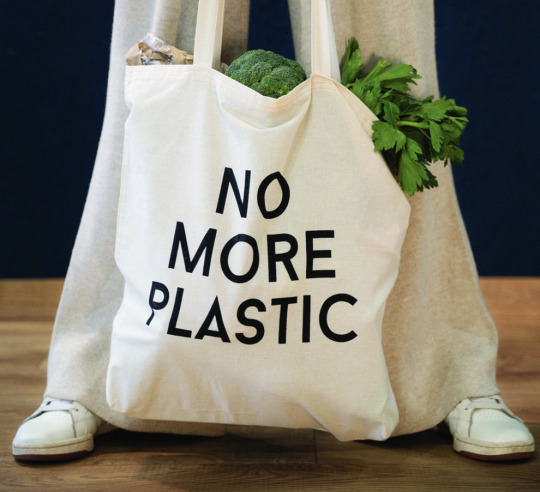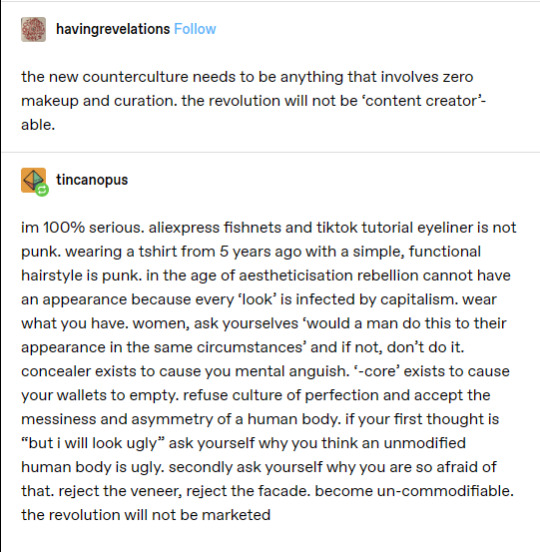#REDUCE
Explore tagged Tumblr posts
Photo

The 7 R’s of Sustainability:
Did you know that ‘recycling’ is step 6 of the 7 Rs of sustainability? The other R’s are just as important even if they are often forgotten.
Rethink- Do I really need to buy this? The point of this step is to stop and think.
Refuse- Does this product damage the environment? If so, refuse to spend your money on it. i.e. single use plastics, harsh chemicals
Reduce- How much of this do I really need? Buy less! Buy in bulk when you can as it often equals less packaging to throw out.
Reuse- Can I use this product again? Can I fix what I have so that I don’t need to buy something new? Reuse that plastic water bottle a few times. And instead of buying new, try thrift shopping, flea markets, yard sales etc.
Repurpose- Unlimited creativity! Does this item have another use? i.e. old torn clothes can be rags or plastic cups can be planters.
Recycle- Can I recycle this? Not everything can be. There are also some important steps to making sure your recycling is done properly. If unsure, look up local recycling regulations.
Rot- Can I compost this? Food waste, yard clippings, newspapers and many other items can be composted instead of being tossed in the trash. Composting is surprisingly simple and helps reduce harmful greenhouse gasses from entering the atmosphere.
What is the point of the R’s? The number one benefit of the 7 R’s are the reduction of the amount of waste sent to incinerators and landfills. The EPA website provides a lot of useful information. Other benefits that we can reap from implementing these concepts in our life are (as listed on the EPA website): • Prevents pollution caused by reducing the need to harvest new raw materials • Saves energy from not making a new product • Reduces greenhouse gas emissions that contribute to climate change • Helps sustain the environment and natural resources for future generations • Saves money from processing our waste • Increases economic security by tapping a domestic source of materials • Helps create jobs in the recycling and manufacturing industries in the United States
https://www.northglenn.org/government/departments/public_works/trash/recycling.php https://www.nrdc.org/stories/composting-101 https://www.epa.gov/recycle https://www.northglenn.org/Recycling%20Article.pdf
6K notes
·
View notes
Photo

Reduce Reuse Recycle..
Don't forget to save the environment!
213 notes
·
View notes
Text
Made another zine, "reduce, reuse, upcycle" it's about action against fast fashion, with anarchist themes.





Reblogs > likes
#sillycourtjester rambles#sillycourtjester writes#sillycourtjester doodles#zine#art zine#info zine#fast fashion#stop fast fashion#reduce#reuse#upcycle#second hand clothes#thrift#thrifting#clothing repair#clothes#clothing#DIY#diy clothes#support local artists#art#textile art#resistance#make art#anti fast fashion#revolt
26 notes
·
View notes
Text
I took a break from the towel for an interesting task.
To molt a toy of its robotic parts so it can be a stuffy. Like this one:

The inside parts were malfunctioning and it kept neighing repeatedly. Like a horsey demon.
There wasn't a way to fix it. Plastic parts, plastic gears, glued together motor cage, etc.
I had to wrestle the legs out and cut the heads inside fabric off of the mechanical parts.

It's like making a lobster molt upside down.
What am I doing?

This is fine.
This is a normal activity.

It looks fine!
This is a normal unicorn!
Look at them all ready for playtime!
I had some concerns that a leg would rip, but no! And back to the owner immediately. I had to ask for it back to take a picture.
#upcycling#upcycle#mending#sewing#repair#ecofriendly#reduce reuse recycle#reduce#tear unicorn into pieces#okay just the mechanical parts
37 notes
·
View notes
Text







Made pillows from all the scrap fabric from making my wardrobe. I stuffed it with even smaller scraps.
#recycled#recycled art#scrap fabric#sewing#textile#art#artist#fiber#fiberartist#upcycling#reduce#reuse
8 notes
·
View notes
Text




Some hotels use “waste reducing” soap bars to eliminate the unused center.
#interesting#interesting facts#discover#thats interesting#thats incredible#thats insane#like woah#woah#woah dude#woah :0#soap#soap bar#hotel#hotels#soaps#reduce#watseful#whatthe#what the freak#what the flip#what the#what#what the hell#what the fuck#what the heck#woahhhh#woahg#but woah#woah woah woah#thats crazy
9 notes
·
View notes
Text
No one:
Me when I get something in a Nicely Shaped box: This is a nicely shaped box. I am keeping you
#dadcore#i love boxes#of any shape#but Nicely Shaped boxes are the best#reduce#reuse#recycle#or just keep them for your box collection
44 notes
·
View notes
Text
In the end, rage, no matter how profoundly justified, destroys the enraged. Just as we are created anew by what we love, so we are reduced and remade by what we hate.
Two Years Eight Months and Twenty-Eight Nights by Salman Rushdie
#Two Years Eight Months and Twenty-Eight Nights#Salman Rushdie#end#rage#matter#profound#justified#destroy#enrage#create#anew#love#reduce#unmade#hate#philosophy#life#quotes
18 notes
·
View notes
Text
This is not The End
It is entirely overwhelming, the state of the world. Climate Change, political corruption, corporate dystopia, hate and violence. It takes me by surprise how even knowing about a refugee on the other side of the world being sent back can affect me.
It is not The End. Even in an utterly worst case scenario, like nuclear war, it's not The End. There would be survivors, and those survivors would do everything they can to survive. But that's worst case, and we're far from that.
You've got a sense of powerlessness. You can't make Musk or Murdoch or The Koch's or a screaming orange colostomy bag stop what they're doing.
You know what you can do? You can put out the recycling for collection. You can compost your left overs in a tiny bin in your kitchen. You can feed that plant by your window that's by all accounts is already dead. You can sew a patch onto your torn trousers. You can give your friend, neighbour, or stranger, a potato. Or a joke. Or a bit of advice you learned to be effective. You can find an old book on carpentry, and learn how to fix that creaky step in your apartment.
But why do any of this while the world is burning? It is a complete waste of effort and energy, right? It may be. Maybe there will never be enough of us to turn the world around. So why even try?
Because you are a world. We see things from our own point of view, where we are at the center. At that may sound selfish or egotistical. Don't do the good things for the other world, do it for your own world, and how you build it. Do the things that make your world better, your mind, your body, your home.
Build the bridges to other worlds. To your friends, your family, your lovers, your children, even to strangers. When you've gotten your world stable, help them with theirs, and maybe they'll help you too.
Make the nice food for yourself. Maybe share it. Ask if anyone wants your old clothes, even just rags. They might have a use for them. Keep the empty bottle in your pocket till you find a bin, or even collect others. Pull out the weeds. Put on sunscreen. Fix your umbrella. Look at all the photos you've taken. Read. Learn. Try. And do not fear failure. Absolutely no one is immune to failure. No one. Embrace the mistakes you make. Make them again. And again. Get it right and make a mistake again. You are your own world that you can control and influence. And even if there aren't enough of us who try to make the world a better place, we'll have made our own better, and shown others they can too.
71 notes
·
View notes
Text
10 Easy Ways to Start Your Sustainable Journey Today
Introduction:
Embarking on a sustainable journey doesn't require a complete overhaul of your lifestyle. In fact, small, mindful steps can lead to significant positive changes for both you and the environment. If you're new to sustainability or looking for simple ways to make a difference, you're in the right place. In this post, we'll explore ten easy steps you can take right now to kickstart your sustainable living journey.

1. Reduce, Reuse, Recycle:
The classic mantra holds true. Start by properly recycling items like paper, glass, and plastics. Before tossing something out, consider if it can be repurposed or upcycled. Reducing waste begins with conscious choices.
2. Conserve Energy:
Switch off lights and unplug devices when not in use. Opt for energy-efficient LED bulbs and appliances. Even adjusting your thermostat by a degree or two can make a difference.
3. Ditch Single-Use Plastics:
Invest in reusable shopping bags, water bottles, and coffee cups. Say goodbye to disposable utensils and straws. These small changes can significantly reduce plastic waste.
4. Choose Sustainable Transportation:
Whenever possible, opt for walking, biking, or using public transportation. Consider carpooling or investing in an electric or hybrid vehicle if it aligns with your needs.
5. Support Local and Sustainable Food:
Frequent local farmers' markets, and choose seasonal, locally sourced produce. Reducing food miles and supporting sustainable farming practices benefit both you and the planet.
6. Unplug and Disconnect:
Set aside tech-free time to reduce screen time and energy consumption. Encourage family or friends to join you in reconnecting with nature and each other.
7. Practice Mindful Consumption:
Before making a purchase, ask yourself if it's a necessity. Invest in high-quality, durable items that will last. Choose brands with a commitment to sustainability.
8. Compost Your Kitchen Waste:
Turn food scraps and yard waste into nutrient-rich compost for your garden. It's a fantastic way to reduce landfill waste and enrich your soil naturally.
9. Educate Yourself and Others:
Stay informed about environmental issues and solutions. Share your knowledge with friends and family to inspire collective action.
10. Get Involved Locally:
Engage with local environmental groups and community initiatives. Participate in clean-up events, tree planting, or sustainability workshops. Your active involvement can create positive change at the grassroots level.
Conclusion:
Remember, sustainability is a journey, not a destination. Each step you take, no matter how small, contributes to a brighter, greener future. So, start today, and together, we can make a meaningful impact. Stay tuned for more insights and tips on sustainable living from GreenLife Insights!
#sustainability#greenliving#eco friendly#Environmental Conservation#reduce#reuseandrecycle#energy conservation#mindful consumption
37 notes
·
View notes
Text

Anyone else remember these huge pieces of entertainment furniture that everyone seemed to have? Turns out they can find some new life.
50 notes
·
View notes
Text
reduce is the first step remember. You don't have to recycle something that doesn't exist in the first place.
14 notes
·
View notes
Text
A Sustainable Solution for Lebanon’s Plastic Waste Crisis


1. Introduction: Why CleanLeb?
Lebanon faces a severe plastic waste crisis, with pollution damaging its environment, health, and economy. CleanLeb is a pioneering initiative designed to tackle this issue by transforming plastic waste into sustainable building materials. Our approach not only reduces plastic pollution but also contributes to economic growth and innovation in the construction industry. By creating a circular economy for plastic waste, CleanLeb aims to drive sustainable development and a cleaner future for Lebanon.
2. The Problem: Lebanon’s Plastic Waste Crisis
Excessive Plastic Waste: Lebanon generates thousands of tons of plastic waste annually, with little to no recycling infrastructure.
Environmental Damage: Plastic pollution harms soil, water, and marine life, affecting biodiversity and agricultural productivity.
Health Hazards: Microplastics and toxic waste seep into food and water sources, causing long-term health risks such as respiratory diseases and cancer.
Economic Loss: Inefficient waste management leads to high government spending on waste removal, while missed opportunities in recycling and sustainable industries limit economic growth.
Urban and Rural Impact: Overflowing landfills and illegal dumping sites worsen living conditions, particularly in underserved rural areas, impacting public health and tourism.
3. The Solution: CleanLeb’s Innovative Model
CleanLeb transforms plastic waste into valuable construction materials, reducing environmental harm while providing a sustainable alternative to traditional building resources. Our model is built on three main pillars:
A. Collection & Recycling
Establishing plastic collection points in urban and rural areas, including schools, community centers, and businesses.
Partnering with municipalities, NGOs, and local businesses to streamline waste sorting and collection processes.
Introducing incentive-based programs where citizens and businesses receive benefits for contributing plastic waste.
Raising awareness through public campaigns to promote waste segregation at the source.
B. Processing & Production
Implementing cutting-edge technology to convert plastic waste into durable and high-quality construction materials such as bricks, paving stones, roofing tiles, and insulation panels.
Ensuring that our products meet rigorous safety and environmental standards for sustainable building practices.
Innovating in research and development to continuously enhance product quality, reduce costs, and explore additional applications for recycled plastic materials.
Reducing reliance on imported building materials, strengthening Lebanon’s self-sufficiency in the construction sector.
C. Market Implementation
Supplying government infrastructure projects, private construction companies, and housing developers with eco-friendly building materials.
Advocating for the adoption of green building regulations and sustainable procurement policies at the national level.
Supporting small and medium-sized enterprises (SMEs) by providing cost-effective, durable materials that align with Lebanon’s economic and environmental goals.
Expanding CleanLeb’s reach through partnerships with international organizations working on environmental sustainability.
4. The Benefits of CleanLeb
A. Environmental Impact
Drastically reduces plastic waste in landfills, rivers, and coastal areas.
Decreases pollution levels, protecting soil, groundwater, and marine ecosystems.
Reduces carbon emissions associated with plastic production and disposal.
Promotes responsible waste management practices nationwide.
B. Economic & Social Impact
Creates thousands of green jobs in waste collection, recycling, and sustainable construction industries.
Encourages local entrepreneurship and innovation in the recycling sector.
Reduces municipal waste management costs by diverting plastic from landfills.
Lowers construction costs through the availability of affordable, locally-produced materials.
Improves urban and rural infrastructure by utilizing eco-friendly, durable construction materials.
C. Innovation & Sustainability
Pioneering Lebanon’s transition towards a circular economy.
Fostering collaboration between research institutions, universities, and industry experts to develop advanced recycling technologies.
Aligning with the UN Sustainable Development Goals (SDGs) by promoting responsible consumption and production.
Setting an example for other developing countries on how to efficiently manage plastic waste.
5. How the Government Can Support CleanLeb
A. Policy & Regulation
Enacting strict waste management laws that mandate plastic recycling and penalize illegal dumping.
Introducing tax incentives for companies using recycled materials in their products.
Supporting a national standard for eco-friendly building materials in government-funded infrastructure projects.
Establishing a dedicated regulatory body to oversee and promote sustainable waste management initiatives.
B. Funding & Investment
Providing financial grants and subsidies for research and development in plastic recycling technologies.
Encouraging public-private partnerships (PPPs) to expand CleanLeb’s recycling and production facilities.
Offering low-interest loans and incentives to startups and businesses engaged in green initiatives.
Launching government-backed investment funds to drive sustainable infrastructure development.
C. Infrastructure & Logistics
Allocating land and facilities for CleanLeb’s recycling and production plants.
Enhancing nationwide waste collection infrastructure, including smart bins and sorting stations.
Implementing smart waste management systems to optimize recycling efficiency.
Establishing regional recycling hubs to decentralize waste management and reduce transportation costs.
6. CleanLeb’s Vision for a Greener Lebanon
CleanLeb envisions a future where Lebanon thrives as a leader in sustainable waste management, transforming environmental challenges into economic opportunities. Through technological innovation, strategic partnerships, and government collaboration, we aim to:
Build a national circular economy where plastic waste is repurposed into valuable materials.
Promote environmental awareness and instill a culture of responsible consumption and recycling.
Strengthen Lebanon’s infrastructure with eco-friendly building solutions.
Position Lebanon as a regional pioneer in green construction and sustainable urban development.
7. Call to Action
We urge the Lebanese government to take immediate action by:
Collaborating with CleanLeb to implement an efficient and scalable waste management system.
Investing in sustainable recycling infrastructure and incentivizing the private sector’s involvement.
Adopting eco-friendly building materials in all government-led construction projects.
Educating the public through national awareness campaigns on the importance of recycling and sustainability.
Implementing smart policies that make plastic recycling a mandatory practice for businesses and municipalities.
With strong government support, CleanLeb can drive Lebanon’s transition toward a cleaner, greener, and more sustainable future. Together, let’s transform Lebanon’s plastic waste crisis into a national success story.
CleanLeb – Turning Waste into Opportunity
#climate change#donate#lebanon#lebanese#recycling#recycledmaterials#sustainability#reduce#reuse#reduce reuse recycle#plastic waste#encouragement#government
2 notes
·
View notes

